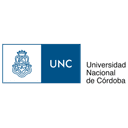This course is part of Siembra Directa: agricultura productiva sustentable.
This comprehensive course analyzes the evidence and processes associated with no-till farming systems for improving or maintaining soil properties. You'll explore water movement in soil, including infiltration, runoff, evaporation, transpiration, storage, and drainage. The course examines soil properties that affect these movements, such as surface condition, infiltration capacity, total soil porosity, size distribution, and mechanical resistance. You'll study various soil properties including bulk density, field capacity, permanent wilting point, hydraulic conductivity, and chemical variables. The curriculum covers surface roughness of soils measured by laser rugosimeter and how no-till systems improve soil surface conditions. You'll learn how grain crops contribute carbon materials resistant to degradation, maintaining soil conditions for several years and improving erosion resistance. The course also addresses mechanical resistance affecting water permeability and root penetration, water storage capacity related to total soil porosity, loss of porosity and its relationship with soil compaction, and organic matter as an ally against soil compaction. By the end of the course, you'll understand the recommended limits for remedying surface and subsurface compaction and the soil as a three-phase system: solid, liquid, and gaseous.
Instructors:
English
English, Español
What you'll learn
Learn about soil properties and processes associated with no-till farming systems Understand water movement in soil including infiltration, runoff, evaporation, and drainage Analyze soil properties like bulk density, field capacity, and hydraulic conductivity Examine how grain crops contribute to soil stability and erosion resistance Explore the relationship between water storage capacity and soil porosity Understand soil compaction causes and organic matter's role in prevention Analyze herbicide behavior and elimination processes in soil systems Study soil as a three-phase system: solid, liquid, and gaseous
Skills you'll gain
This course includes:
PreRecorded video
Graded assignments, Exams
Access on Mobile, Tablet, Desktop
Limited Access access
Shareable certificate
Closed caption
Get a Completion Certificate
Share your certificate with prospective employers and your professional network on LinkedIn.
Created by
Provided by

Top companies offer this course to their employees
Top companies provide this course to enhance their employees' skills, ensuring they excel in handling complex projects and drive organizational success.





There are 3 modules in this course
This course provides a comprehensive analysis of soil properties and processes in no-till farming systems. Participants will learn about water movement in soils, including infiltration, runoff, evaporation, transpiration, storage, and drainage. The curriculum examines how soil surface conditions, infiltration capacity, total soil porosity, size distribution, and mechanical resistance affect these movements. Students will study important soil properties such as bulk density, field capacity, permanent wilting point, hydraulic conductivity, and various chemical variables. The course explores how grain crops contribute carbon materials resistant to degradation, maintaining soil conditions and improving erosion resistance. Particular attention is given to water storage capacity, its relationship to total soil porosity, and how the loss of porosity relates to soil compaction and root penetration limitations. The role of organic matter in mitigating soil compaction is emphasized, along with recommended limits for addressing surface and subsurface compaction issues. The course also covers herbicide elimination processes in soil systems and approaches soil as a three-phase system: solid, liquid, and gaseous.
El sistema suelo-planta.ambiente. Propiedades físicas del suelo
Module 1
Efectos de degradación física del suelo
Module 2
Los herbicidas en el suelo y su comportamiento
Module 3
Fee Structure
Individual course purchase is not available - to enroll in this course with a certificate, you need to purchase the complete Professional Certificate Course. For enrollment and detailed fee structure, visit the following: Siembra Directa: agricultura productiva sustentable
Payment options
Financial Aid
Instructors

1 Course
Educator and Advocate for Sustainable Agriculture
Dr. Susana Hang, a dedicated educator at the Faculty of Agricultural Sciences, Universidad Nacional de Córdoba, is renowned for her expertise in soil science and sustainable agricultural practices. With a strong focus on no-till farming systems, she works to bridge the gap between scientific research and practical applications in agriculture. Her teaching emphasizes the critical role of soil health in achieving long-term sustainability and productivity. Through her contributions to education, Dr. Hang inspires agricultural professionals to adopt innovative and environmentally friendly practices that address global challenges in food production and resource conservation.
-1744457111437.webp&w=256&q=75)
1 Course
Renowned Soil Scientist and Educator
Dr. Omar Bachmeier, a leading expert in soil science, serves as the Subsecretary of Postgraduate Studies at the Faculty of Agricultural Sciences, Universidad Nacional de Córdoba. He has made significant contributions to research and education in sustainable agriculture, particularly focusing on soil management within no-till farming systems.
Testimonials
Testimonials and success stories are a testament to the quality of this program and its impact on your career and learning journey. Be the first to help others make an informed decision by sharing your review of the course.
Frequently asked questions
Below are some of the most commonly asked questions about this course. We aim to provide clear and concise answers to help you better understand the course content, structure, and any other relevant information. If you have any additional questions or if your question is not listed here, please don't hesitate to reach out to our support team for further assistance.


-1744457111437.webp&w=3840&q=75)
